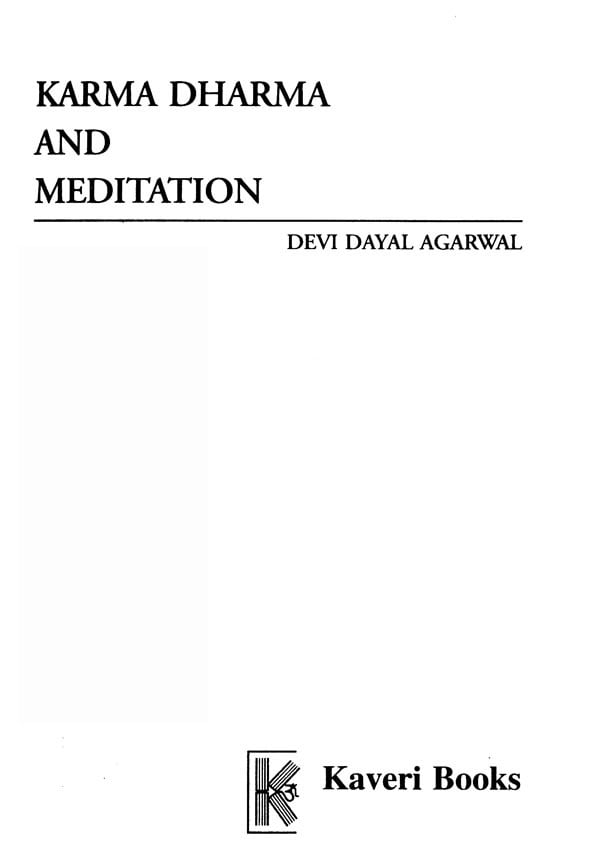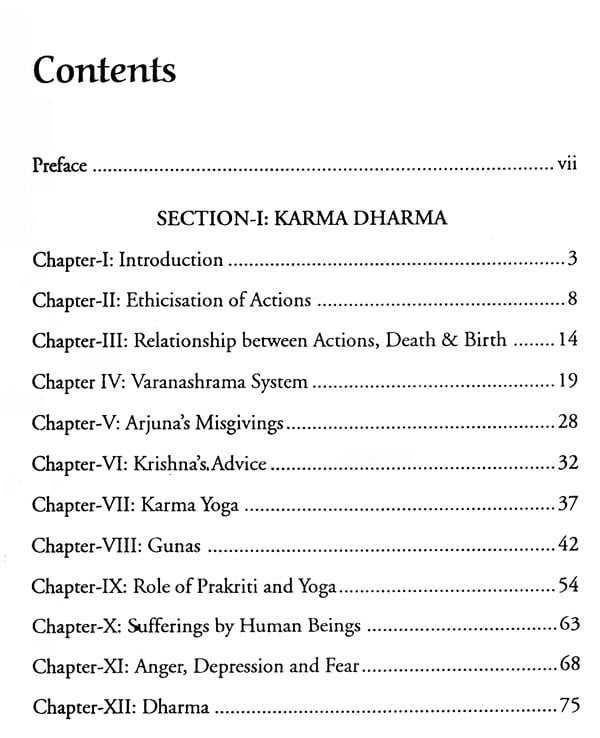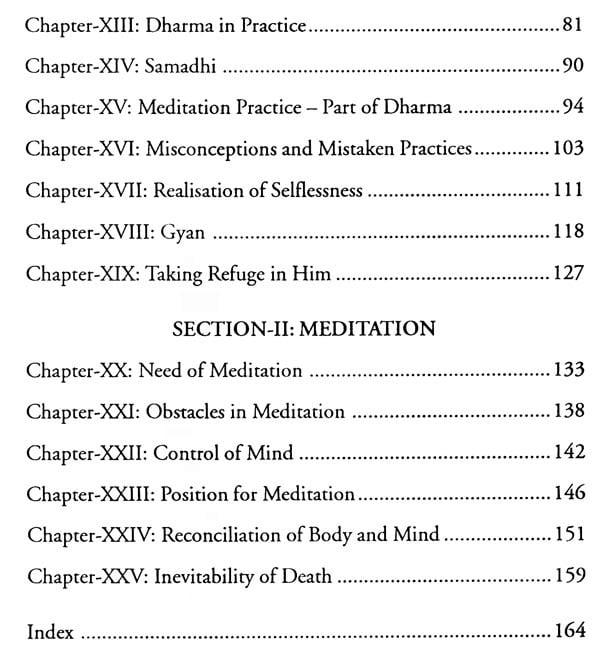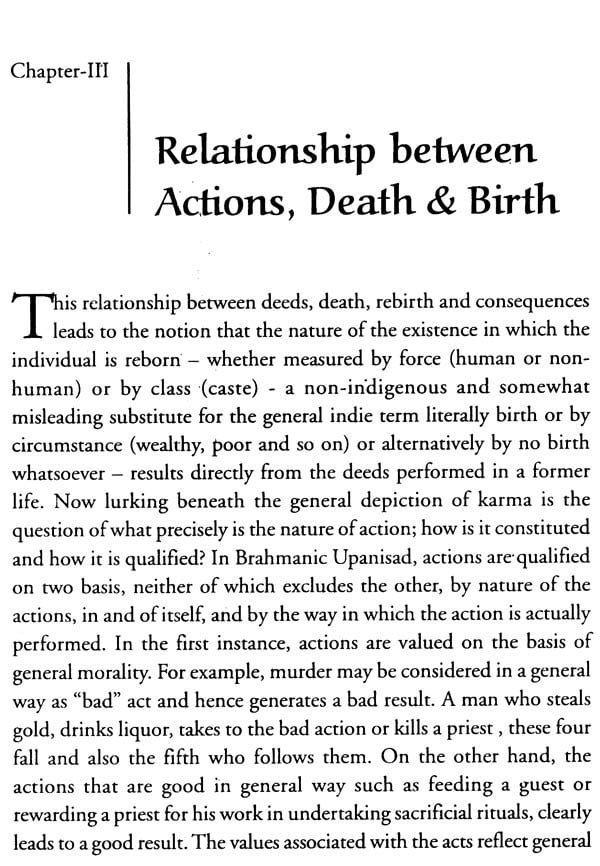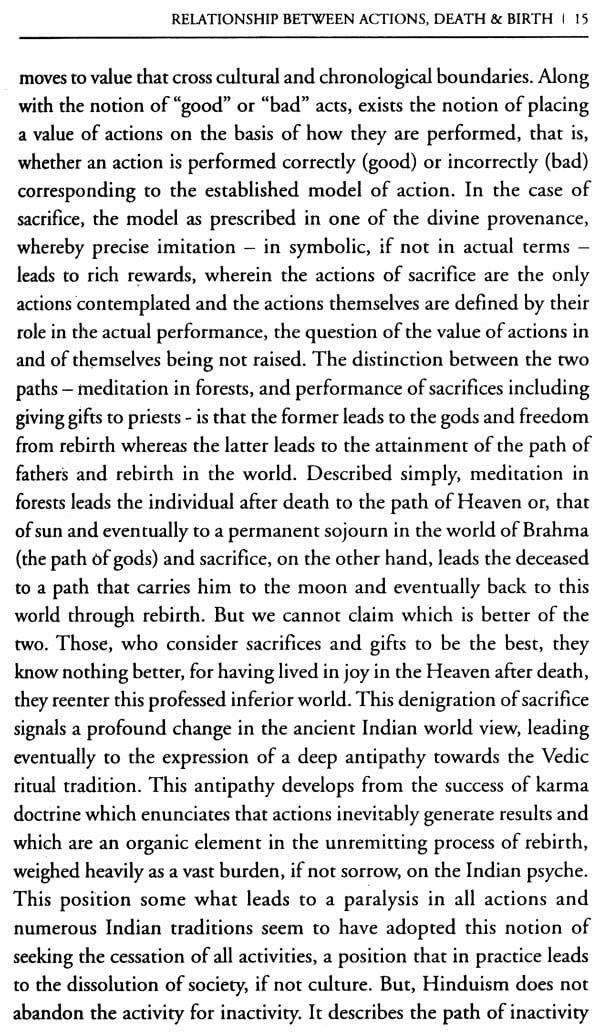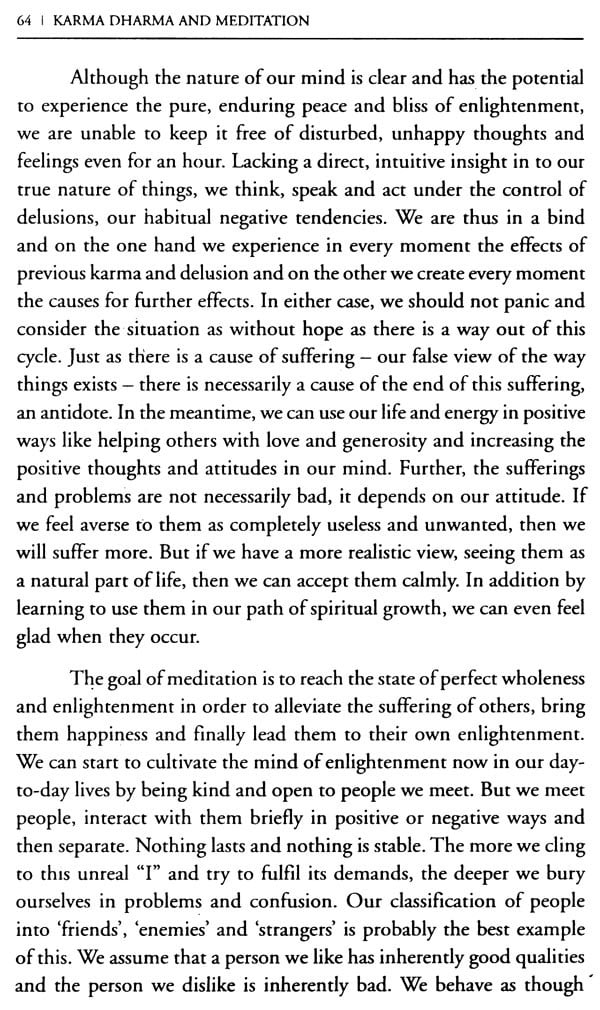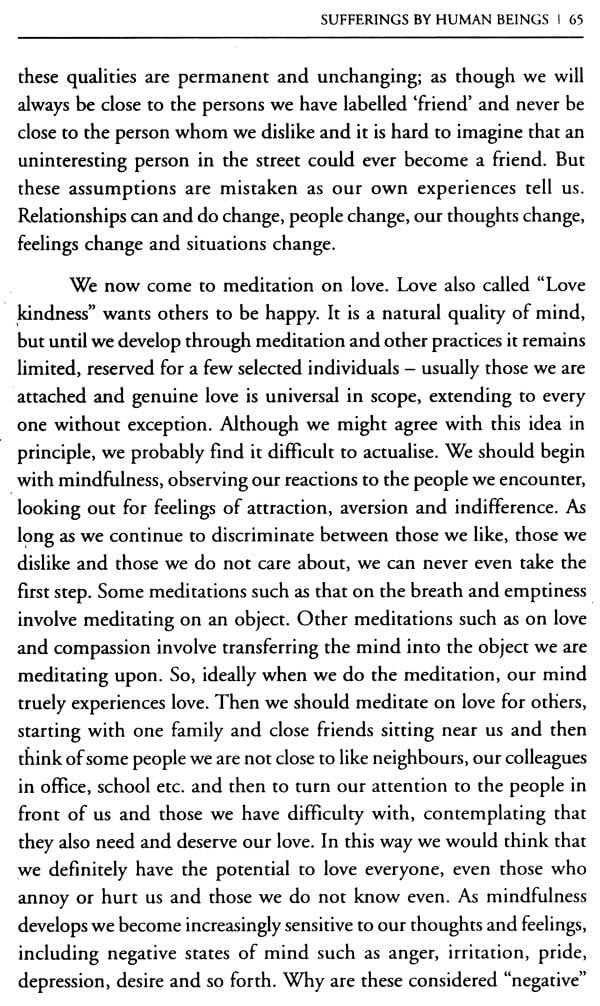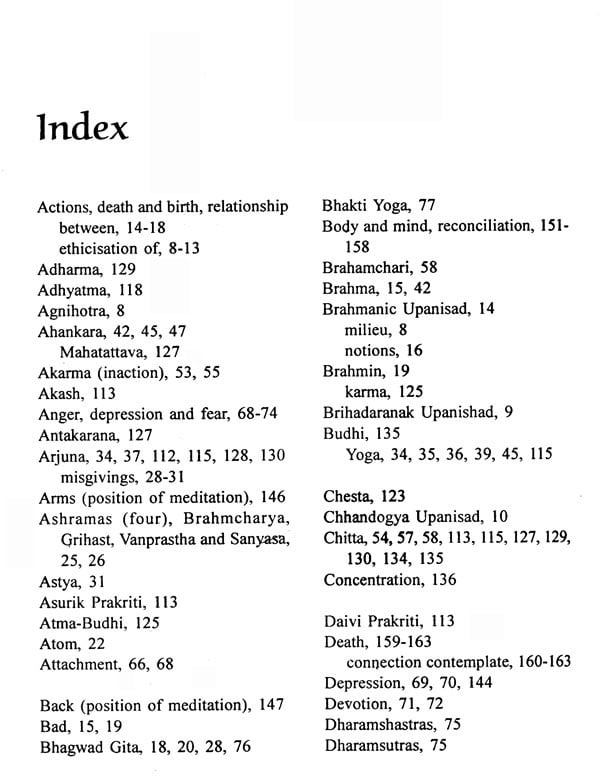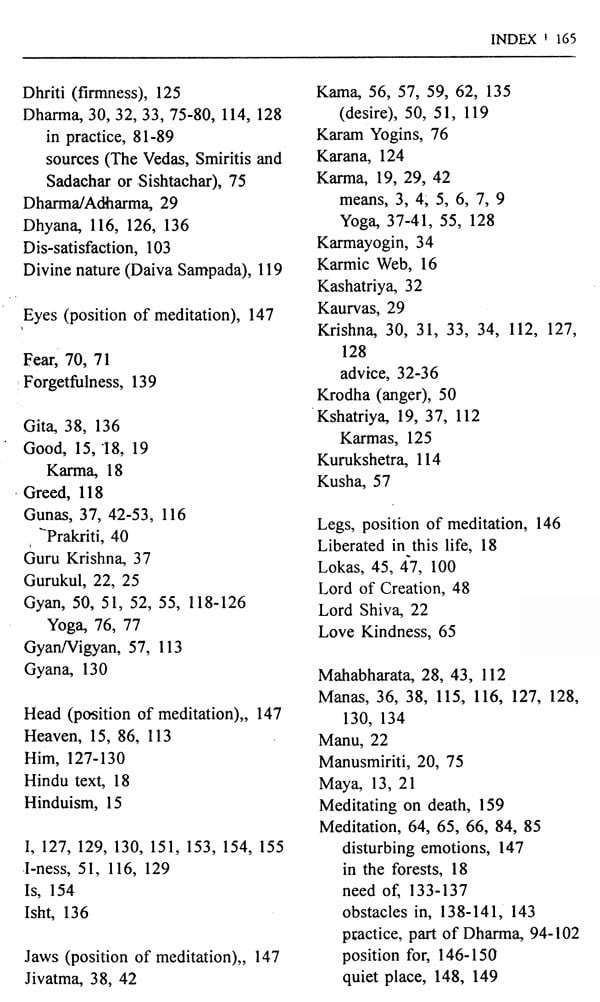About the Book A person comes in this universe to do three jobs-Karma, Dharma and Meditation. These three contain the entire philosophy of Bhagwat Gita as enunciated by Lord Krishna to Arjuna for being followed by public at large. Karma is to take action for earning money, producing children and their bringing up while living in the universe. Dharma is to do this action according to one's Varnashrama Dharma and Meditation is to surrender all his doings to God. However he gets absorbed in the first that is earning money and producing children. He remembers nothing or a little of dharma and completely ignores Meditation. It is only at the far end of life that he remembers these two but then it is too late and at that time he regrets for having wasted his life.
This book has been brought out to imbibe in him right from the childhood the importance of these three jobs and how these can be accomplished, in a very intelligible and easy way. A reading of this book shall surely bring the person to put some effort in achieving the goal of Karma, Dharma and Meditation.
About the Author Hailing from Haryana, the author D.D. Aggarwal (b.1933) did his schooling from Sonepat and had further education from Delhi. Having being recruited through IAS and Allied Services examination, he retired as Joint Secretary from Ministry of Railways in 1994. After retirement he started writing books as pastime and has already written many books including: Protocol in Ramcharitmanas (in English and Hindi), Protocol in Srimad Bhagwat (in English and Hindi), Protocol in Mahabharat Upanishads: The Real Truth, India Ever Independent: Why Only Fifty years and Jurisprudence in India Through ages. Of late he has started writing poems in Hindi and has a collection of over 1200 poems, mostly on spiritualism.
Foreword Tarma, Dharma and Meditation are the basic tenets of Hindu K A way of life. These have been deliberated in Upanishads and Puranas culminating in the teachings of Bhagwad Gita. Sri Krishna, in his sermon to Arjuna, who was not willing to take up arms against his adversaries, when the armies of Pandavas and Kauravas were embattled considering that he will have to fight with his gurus, grandfather and brothers for the sake of claiming his kingdom, convinced him of his Dharma' to fight.
There is a wafer-thin line between Karma and Dharma as Sri Krishna has told that human beings' Dharma is to follow the respective Varanashrama Dharma, which is his Karma and his future lives shall be determined according to those Karmas. Arjuna, being a Kshatriya, as such, his Dharma was to fight. On Sri Krishna's behest, Arjuna got: ready to fight and thus came about the epic battle Mahabharata. Sri Krishna has told that one's duty is to observe one's Dharma and do the Karma leaving the result on God. This convinced Arjuna to fight and Pandavas were victorious.
Introduction But what follows which call cause and All take for granted such the key ignition, operate, some computer and the desired information The whole world to and effect and there direct relationship word every action take, cause and period time these karmic causes ripen become effect. moment constantly karmic destiny. The good thing about the law of our create whatever predestination and think that one have change This fallacy. is change a powerful dynamic creating thousands of every of our mindfulness, we may not aware it. how important subdue our minds be fully moment. only the big thing do that matters. do not have do anything refrain from doing dramatic defraud our employees giving large cheque a charity negative positive karma.
**Contents and Sample Pages**
